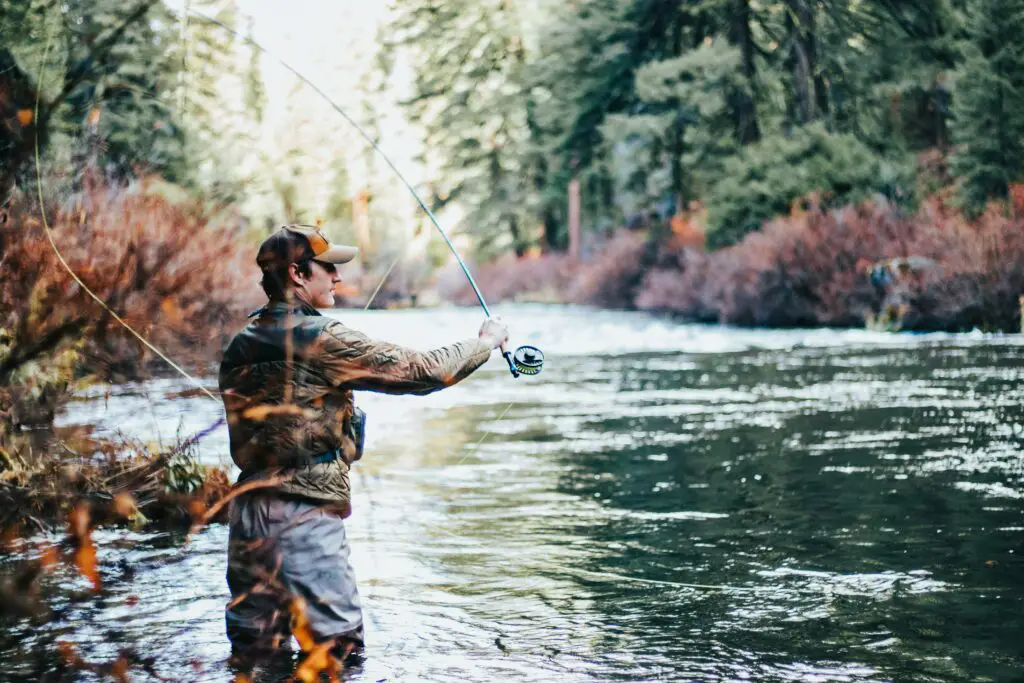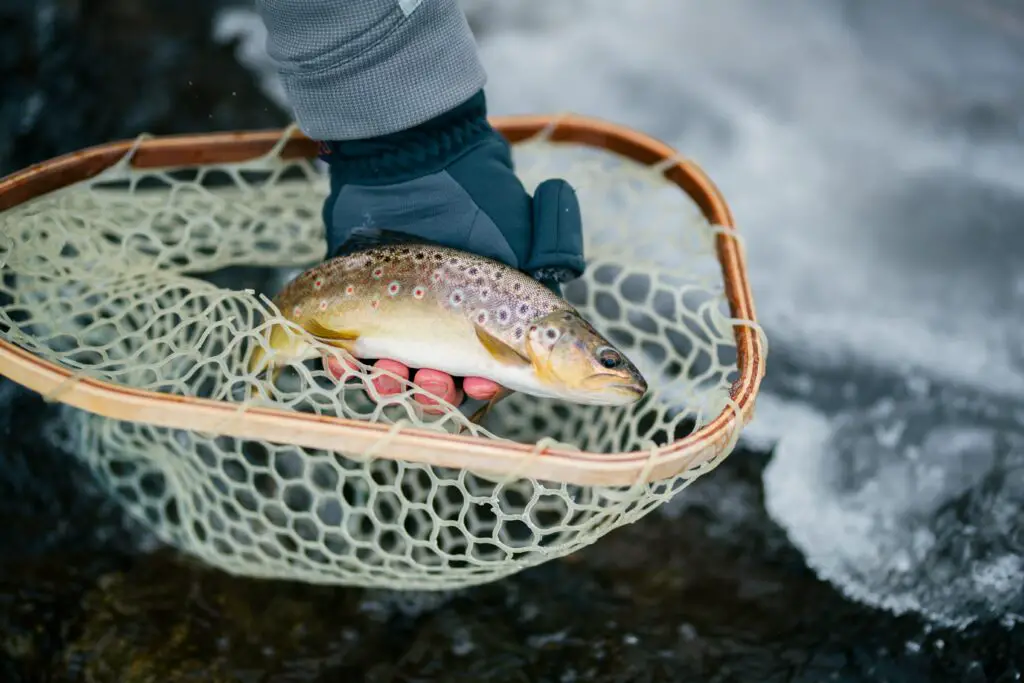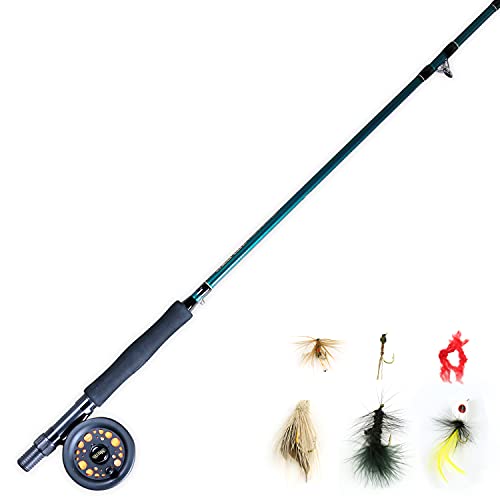The Thrill of the Catch: Why Fly Fishing Offers a Unique Challenge

Fishing has been a popular pastime for centuries, with many people taking to the water in search of a big catch. However, while traditional fishing has its own charm, there is something special about fly fishing that sets it apart. It’s a technique that involves using a lightweight artificial lure, or “fly,” that is cast with a special type of fishing rod and reel.
Compared to traditional fishing, fly fishing requires a unique set of skills and techniques. The experience is also different, as it provides a deeper connection with nature and a greater mental and physical challenge. In this post, we will explore why fly fishing offers a unique challenge for anglers that traditional fishing does not. We will look at the gear, the technique, the catch, and the overall experience, highlighting what sets it apart from traditional fishing. So, whether you are an experienced angler or a curious beginner, read on to learn why fly fishing may just be the challenge you’ve been looking for.
The Gear

One of the first things you may notice about fly fishing is the unique gear required for the sport. Fly rods, reels, and lines are specifically designed to work together to create the delicate presentation needed to catch fish. Compared to traditional fishing gear, fly fishing gear is much lighter and more flexible, allowing for greater precision and control when casting.
The rod is typically longer and thinner than traditional fishing rods, allowing for greater casting distance and accuracy. Reels are also different, as they are designed to hold lightweight fly fishing line and are typically much smaller than traditional fishing reels. Fly fishing line is much thinner and lighter than traditional fishing line, which allows the angler to cast the fly more delicately.
The gear used is an essential component of the experience, and it takes some getting used to. Compared to traditional fishing gear, fly fishing gear may feel more challenging to handle at first, but with practice, it becomes second nature. The unique combination of the fly rod, reel, and line creates a specialized system that sets fly fishing apart and makes it a unique challenge for anglers.
The Technique
In addition to the unique gear, fly fishing also requires a specialized casting technique that is different from traditional fishing. Fly casting involves using a series of fluid motions to create a tight loop of line, which then propels the fly forward to land delicately on the water’s surface.
Fly casting requires a high level of precision and control, as the angler must not only cast the fly with accuracy but also control its speed, direction, and presentation on the water. Unlike traditional fishing, where the bait is typically dragged along the bottom of the water, fly casting involves mimicking the natural movements of insects that fish feed on. This means that the fly must be presented to the fish in a way that looks natural and enticing, which requires a delicate touch and careful attention to detail.
Fly casting can take time to master, and even experienced anglers may struggle with the technique in certain weather conditions or with different types of flies. However, the challenge of fly casting is part of what makes fly fishing so rewarding. It is a skill that requires practice and patience, but once mastered, it allows the angler to present the fly with precision and control, increasing the chances of catching the elusive fish.
The Catch
One of the most rewarding aspects of fly fishing is the catch itself. Fly fishing offers a unique challenge when it comes to catching fish, as it requires a greater level of skill, patience, and strategy than traditional fishing.
First, fly fishing typically targets specific species of fish, most often trout, which can be more challenging to catch than others. These fish may require the angler to use specific types of flies or techniques to attract them, and they often have a keen sense of sight and smell, making them harder to fool.
Additionally, it often involves catch-and-release practices, where the fish is returned to the water unharmed. This requires the angler to handle the fish with care and precision, ensuring that the fish is not injured during the release process.
Finally, the satisfaction of catching a fish on a fly is hard to beat. Unlike traditional fishing, where the bait is typically swallowed whole by the fish, fly fishing involves setting the hook on the fish with a delicate touch, which requires a higher level of skill and finesse.
The catch is often the highlight of any fishing trip, and fly fishing offers a unique challenge that makes the experience even more rewarding. Whether it’s the thrill of catching a rare species or the satisfaction of releasing the fish unharmed, fly fishing provides a unique catch that sets it apart from traditional fishing.

The Experience
Beyond the gear, the technique, and the catch, fly fishing offers a unique experience that is hard to find in any other activity. It takes you to some of the most beautiful and remote places in the world, where you can connect with nature and enjoy the peaceful solitude of the great outdoors.

The sound of the water rushing by, the chirping of birds in the trees, and the feeling of the sun on your face all combine to create a sense of calm and tranquility that is hard to find in our busy, fast-paced world.
Fly fishing also offers a chance to disconnect from technology and the stresses of everyday life. Without the distractions of phones, emails, and social media, you can fully immerse yourself in the experience and enjoy the beauty of the natural world around you.
Moreover, it’s a social activity that can be enjoyed with friends, family, or even strangers. It provides an opportunity to connect with others who share your passion for the sport and to learn from experienced anglers who can offer tips and advice to help you improve your skills.
In the end, the experience is about more than just catching fish. It’s about connecting with nature, challenging yourself, and enjoying the beauty of the world around you. Whether you’re a seasoned angler or a beginner, fly fishing offers a unique experience that is hard to beat.
The Bottom Line
In conclusion, fly fishing offers a unique challenge that sets it apart from traditional fishing. From the specialized gear to the intricate technique, it requires a higher level of skill, patience, and finesse than other types of fishing. However, the reward of catching a fish on a fly, the opportunity to connect with nature, and the chance to disconnect from technology and the stresses of everyday life make it all worthwhile.
Whether you’re a seasoned angler or a beginner, fly fishing offers a challenge that can be enjoyed at any level. So next time you’re looking for a new adventure, consider trying your hand at it. It’s a rewarding experience that offers a unique challenge and an opportunity to connect with nature in a way that few other activities can match.











Leave a Reply